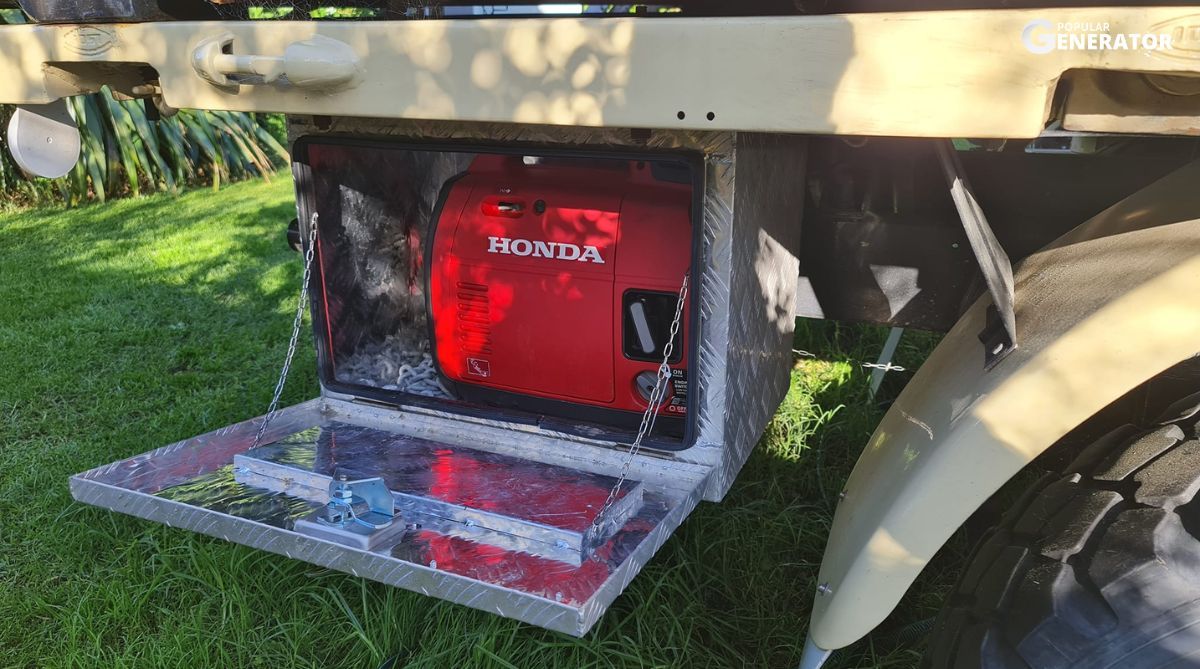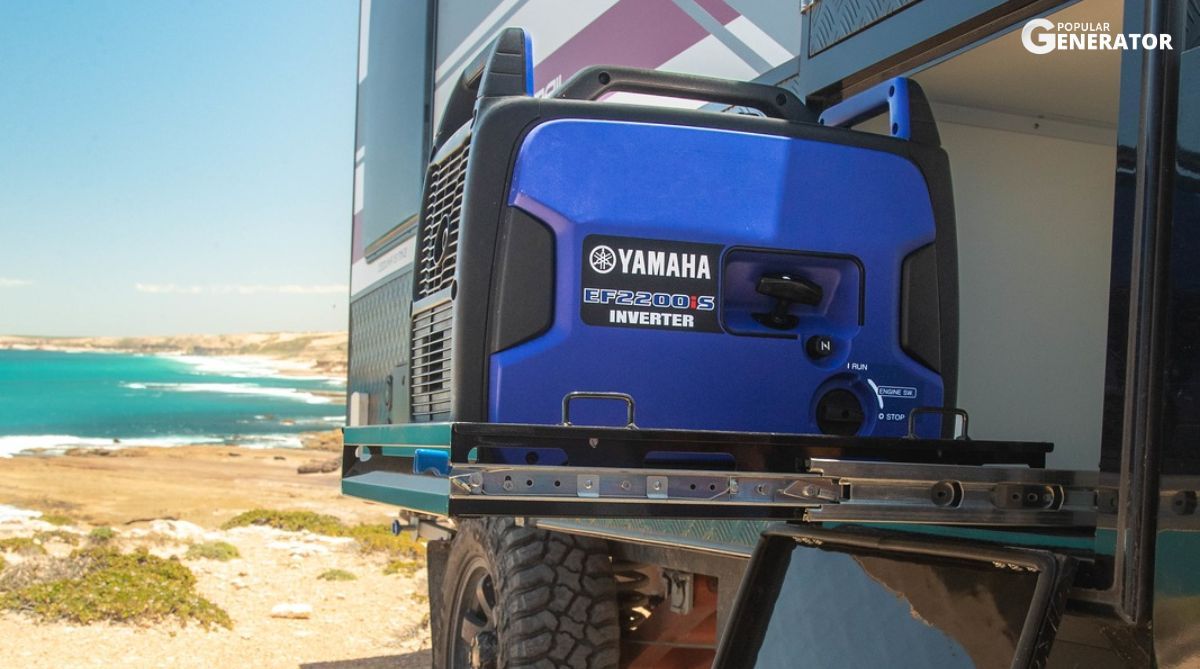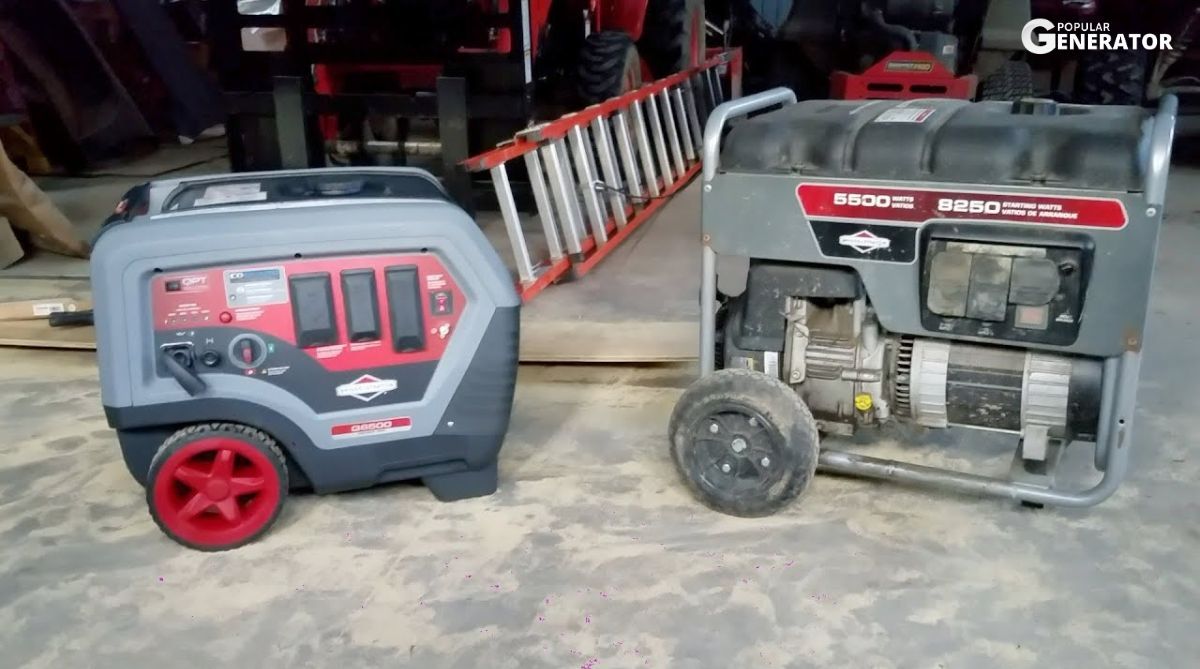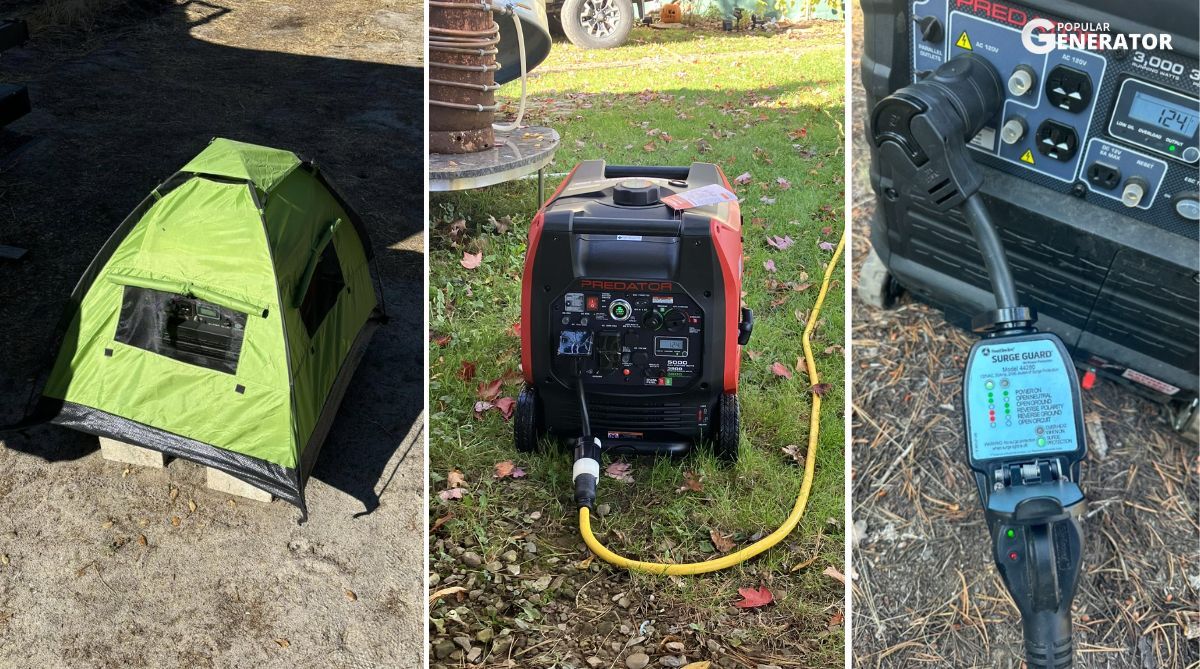What To Look For In Generators For Camping
Picking the right camping generator doesn't have to be complicated. Focus on these key factors to find one that actually works for your camping style. Don't just buy the biggest generator you can afford. Think about what you'll actually plug in during your trips.
How much power do you really need?
Add up all the watts for gear you might run at the same time, then multiply by 1.2 for safety. A phone charger, some lights, and a cooler? That's only about 150 watts total. Add a coffee maker and you're at 750-900 watts. Most campers find that 2,000-2,500 watts handles everything they actually need without breaking the bank or their back.
Weight matters more than you think
If you can't easily move your generator, you won't use it. Generators under 40 pounds are easy to carry solo, while anything between 40 and 70 pounds is manageable if it has good handles or wheels. Once you get over 70 pounds, you're really looking at car camping or RV use only.
Don't forget that fuel adds weight too. Each gallon of gasoline weighs about 6 pounds, so factor that into your carrying capacity when planning longer trips.

Quiet or loud
Inverter generators usually run at 50-60 decibels, about as loud as normal conversation. They cost more but are worth every penny if you camp around other people. Standard generators often hit 65-75 decibels, which sounds like a lawn mower and will make you unpopular fast.
See more: 9 Best Quiet Generators in 2025
The quiet generators are specifically engineered with sound-dampening technology and inverter systems that automatically adjust engine speed based on power demand, making them ideal for campgrounds with strict noise regulations.
Fuel types made simple
Gasoline generators are cheap, powerful, and you can find fuel anywhere. The downside is that gas goes bad quickly without stabilizer, and it's not the most pleasant to transport.
Propane burns cleaner, stores forever, and runs quieter. You'll get slightly less power and pay more to operate, but the convenience factor is huge. Dual-fuel generators let you switch between gas and propane, giving you the best flexibility at a higher upfront cost.
Solar generators are really battery packs with solar panels. They're completely silent and environmentally friendly, but they're limited by battery capacity and charging time.
Built for the outdoors
Camping is tough on equipment, so look for generators built to handle dust, moisture, and temperature swings. Quality engine brands like Honda, Yamaha, and Briggs & Stratton are worth seeking out.
Check that outlets and controls are covered or protected. Read reviews specifically from other campers rather than general users, since camping puts different stresses on generators than home backup use.
Testing 4 Portable Generators for Camping (Test and Review)
We kicked off our weekend field test at a lakeside campsite where noise carries easily across the water, making it the perfect spot to gauge how these four portable generators behave in a real camping environment. The Honda eu2200i was the first to hum to life. At just under 47 pounds and with a compact frame, it was easy to haul from the truck to the picnic table.
Even with a modest 1,800 running watts, it handled a mini fridge, LED lights, and a couple of phone chargers without breaking a sweat. The sound level, measured about 25 feet away, stayed around 53 dB. You could still hold a quiet conversation next to it. In comparison, the Yamaha EF2200iS delivered similar wattage and a slightly larger fuel tank, which translated into a bit more runtime before refueling.
The Yamaha’s noise was in the same ballpark as the Honda, though it had a slightly deeper tone that some might actually find less intrusive at night.

When we brought in the Champion Power Equipment 4750-Watt Dual Fuel, it was immediately clear this unit was aimed at campers with more demanding power needs, like those running a small RV air conditioner or multiple appliances at once.
At 122 pounds, portability is more of a two-person job, but the built-in wheels and folding handle made site setup less of a chore. On gasoline, it delivered a strong 3,800 running watts, while propane shaved a bit off that output but added fuel flexibility.
See more: The 13 Best Portable Generators in 2025 for Power On-the-Go
Noise was a different story. Even with the Eco mode engaged, readings climbed to about 64 dB under moderate load, which is noticeable in a quiet campground but still tolerable if placed at the edge of your site. Compared side-by-side with the Honda and Yamaha, the Champion is clearly the muscle generator of the group, trading some portability and stealth for raw power.

The Briggs & Stratton Q6500 looked more like a piece of luggage than a generator, with its enclosed design and telescoping handle. At 139 pounds, it was the heaviest of the four, but the large wheels rolled smoothly across grass and gravel.
Rated for 5,000 running watts, it was overkill for our light camping setup, but it handled a full-size coffee maker, electric griddle, and multiple chargers without flinching. Noise levels hovered around 66 dB under load, which isn’t whisper-quiet but is impressive for a unit of this capacity. It also sipped fuel surprisingly well, giving nearly 14 hours at 25% load on its 5-gallon tank. This puts it in a different category from the Honda and Yamaha, more of a cross between a camping generator and a small home backup system.
Throughout the weekend, the smaller inverter models the Honda eu2200i and Yamaha EF2200iS were the clear winners for pure portability and peace of mind when charging sensitive electronics.
Their compact size, light weight, and sub-60 dB operation made them easy to live with in close quarters. The Champion and Briggs & Stratton, while significantly heavier and louder, brought much more capacity to the table, making them better suited for RV travelers or group camps that need to run multiple high-demand appliances at once.
See more: Honda EU2200i Portable inverter Generator Review In-Depth
Fuel efficiency was impressive across the board, but the Honda and Yamaha edged out the others when factoring in their smaller tanks and lower consumption rates for typical camping loads.
Essential Tools and Accessories for Your Camping Generator
Getting a generator is just the start. The right accessories make camping safer and more enjoyable.

Generator Tent: A generator tent cuts noise by 5-10 decibels and keeps your unit dry. Rain won't stop your power, and your neighbors will thank you for the quieter operation.
Heavy-duty outdoor extension cords (12-gauge minimum) let you keep the generator 20+ feet from your sleeping area. Always use a carbon monoxide detector in your tent or RV it could save your life.
Grounding Requirements: Some generators and RV parks require grounding rods for safety. Check your manual and campground rules.
Conclusion
Choosing the best portable generator for camping means finding one that’s small, quiet, and dependable. For whisper-quiet performance and long-term reliability, the Honda 2200 Watt 120 Volt Portable Generator is a top pick. If you want a bit more value without losing portability, the Yamaha EF2200iS Inverter Generator is a solid choice.
FAQ About Portable Generator for Camping
1. What size portable generator do I need for camping?
For most camping setups, a generator with 1,000 to 2,000 running watts is enough to power essentials like lights, a small fan, phone chargers, and maybe a coffee maker. If you plan to run higher-demand items like a small RV air conditioner, you’ll want something closer to 2,000–3,000 watts.
2. Are inverter generators better for camping?
Yes. Inverter generators are quieter, more fuel-efficient, and produce cleaner power that’s safe for sensitive electronics. They’re ideal for camping because they won’t disturb the peace of the outdoors or your neighbors at the campsite.
3. How quiet should a camping generator be?
Look for a generator rated at 50–60 decibels or less at a quarter load. That’s about the noise level of a normal conversation and is generally acceptable at most campgrounds. Anything louder can quickly become annoying in a quiet outdoor setting.
4. What fuel type is best for a camping generator?
Gasoline is the most common, but dual-fuel generators that run on propane can be a great choice for camping. Propane stores longer, burns cleaner, and is easier to carry in cylinders without worrying about fuel spills.
5. How long should a camping generator run on a tank of gas?
A good camping generator should run at least 6–8 hours on a single tank at 25–50% load. This way, you can run it in the evening or morning without constant refueling, and avoid noise during sleeping hours.



















